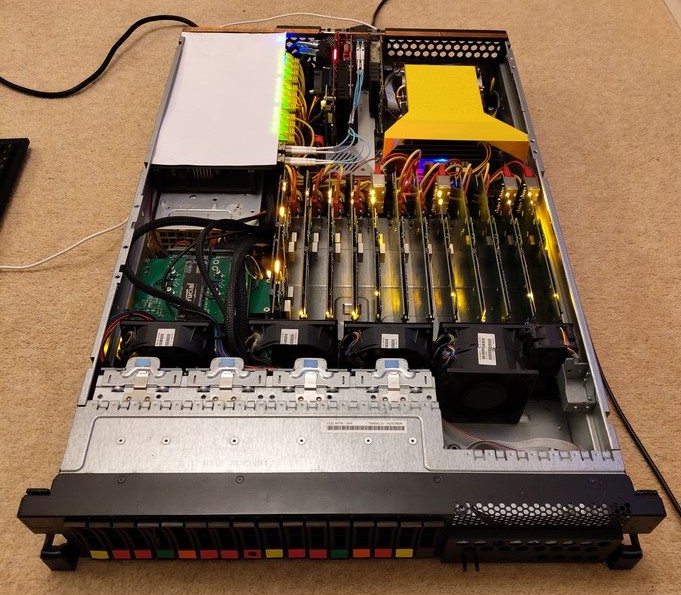Lowclus is a Raspberry Pi CM4 based hybrid cluster server that I've designed and prototyped. Central to the concept is that a cluster of smaller more power efficient servers can function and perform as well as a traditional solution and be more cost effective.
Over 10 years ago I built a similar concept for my final year university project. Back then single board computers (SBCs) were nowhere near as prevalent as the Raspberry PI has become and far less powerful. The Raspberry Pi 4 is a very capable device, especially when using NVMe for storage.
Plus a large amount of web server workloads do not require hundreds of CPU cores nor tebibytes of RAM, a Raspberry Pi 4 is perfectly capable of running many workloads.
Lowclus is focused on building a flexible cluster server, which packs as many compute nodes into a chassis while still providing all the networking and power management to support the compute nodes.
Into a 2U chassis it squeezes:
- 12 slots for Raspberry Pi CM4 module carriers, this enables 24 to 48 CM4s each with an NVMe drive
- 1 MATX motherboard for x86 system
- 16 SFF HDD bays
- 1x 24 port switch
- redundant dual PSUs and sideband management
The Raspberry Pi CM4s are mounted on carrier modules, the server supports 12 slots for these modules, which are all hotswappable. These modules can support 2 or 4 Raspberry Pi CM4 modules with provision for a 2280 M.2 NVMe storage slot for each CM4. Each slot has two Gigabit Ethernet links, with the 4 node modules having an internal Ethernet switch to connect the 4 nodes to 2 uplinks.
My prototypes are retrofitted into existing end of life 2U servers. Making use of the existing PSUs and SFF HDD cages and backplanes. This required reverse engineering the PSUs and HDD backplane, before designing the customer power management subsystem. The chassis manages power to all Raspberry Pi nodes, the main x86 node and the HDD bays, sequencing power on.

